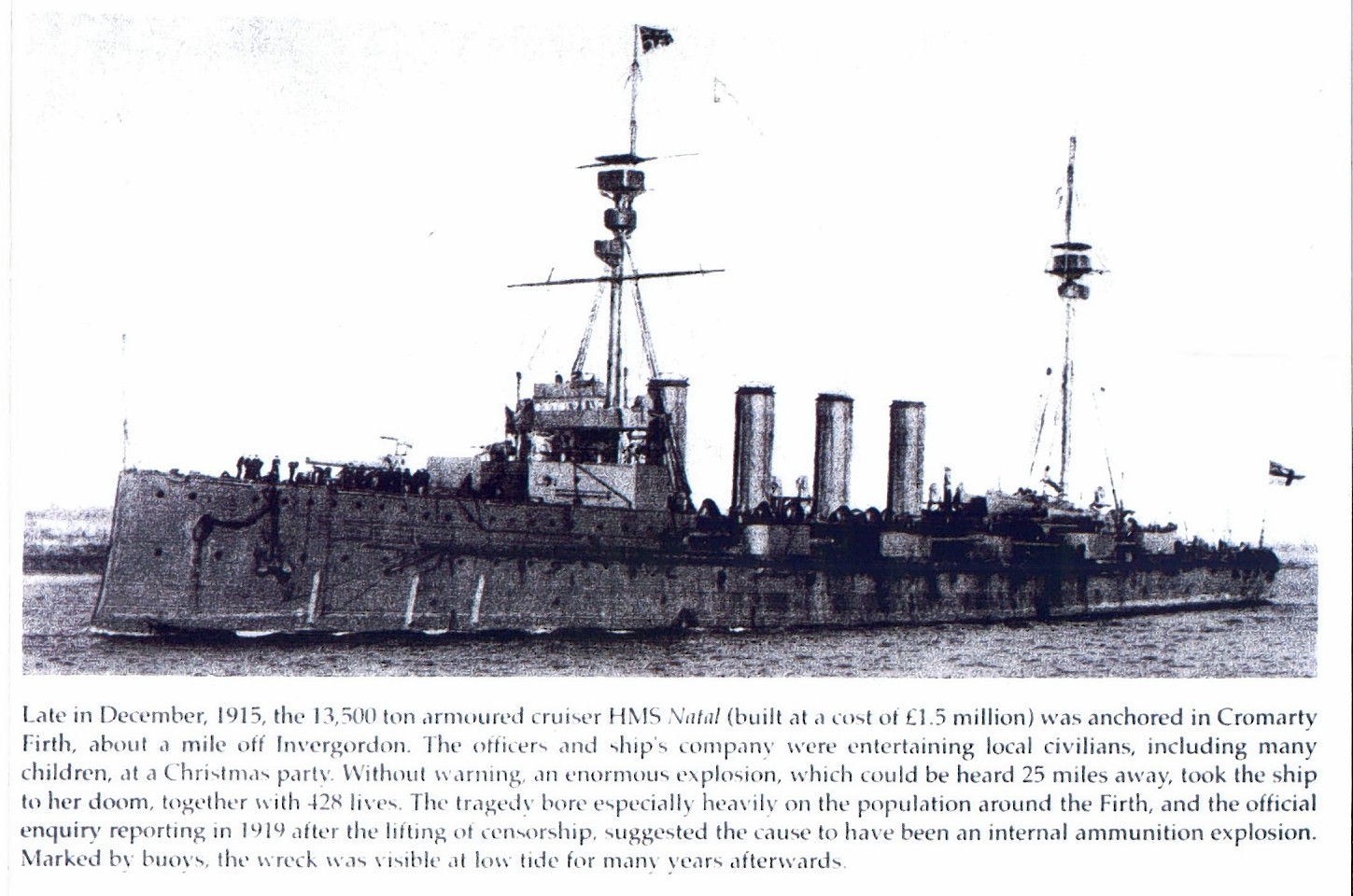Highland residents have been urged to take a moment to remember the hundreds of people who perished in one of the country’s worst naval disasters on the 100th anniversary next week.
HMS Natal was blown up in the Cromarty Firth by its own ammunition, causing the deaths of more than 420 people, on December 30, 2015.
The ship’s captain, Eric Back, had organised a Christmas film show for guests on board, which included seven wives of officers, three children, one civilian and nurses from the nearby ship Drina.
After the explosion, survivors were pulled from the icy waters, but darkness made rescue difficult and many sailors drowned.
Initially it was thought the ship had been torpedoed by German U-boats, but it was later discovered that its ammunition had ignited – possibly due to faulty cordite, which is a shell propellant.
Paul Monk, chairman of trustees at Cromarty Courthouse Museum, set up a website dedicated to the history of the tragedy.
“It was one of the Navy’s biggest disasters, and it was different from the other big ones because of all the towns around the Cromarty Firth,” he said.
“People knew about it. People saw it and heard about it. It happened amongst the people.
“It really was a national event. The sailors who died came from all over. Chatham, London, Northumberland. A few came from Scotland but not many to be honest.
“What makes it unique is one element – that there was a group of civilians on board and, of them, three were children.
“There are not many naval or military disasters that actually involved civilian children.”
Coincidentally, the name Natal is the Portuguese word for Christmas.
Some sailors survived because they were playing a game of football in Cromarty at the time of the explosion, and witnessed the aftermath on the way back.
Another survivor was the ship’s cat.
The vast majority of the 414 naval casualties are commemorated at three memorials at Portsmouth, Plymouth and Chatham.
However, there are 15 graves of men who served on HMS Natal at Cromarty Cemetery, and more at Rosskeen Parish Churchyard.
The Commonwealth War Graves Commission has encouraged local residents to visit the graves to mark the centenary.
In September, Captain Back’s granddaughter Rosalind Cahill and other relations of victims attended a memorial service at Invergordon, before laying wreaths above the area where the vessel was lost.
